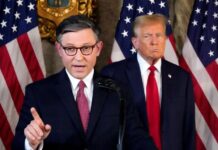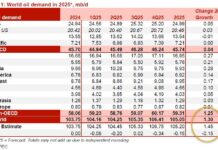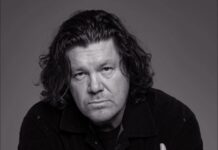Article by Johanna Ross
If there was a theme to the much-awaited Tucker Carlson’s interview of Russian president Vladimir Putin released on 8th February it was change. Change in the world order we have grown accustomed to over the last few decades, change in ideas and perceptions, change in physical borders on the map. And while Vladimir Putin did not immediately agree with Carlson’s characterisation of the ‘multipolar world’ that we are hearing more often about these days, his assertion that countries of the world need to work together to resolve global issues, instead of competing hegemonies, essentially puts forward the vision that Russia has for global cooperation along with the other BRICS member states.
The tectonic plates of change are shifting. The Tucker Carlson interview with Putin, one which was difficult to engineer given the threat of the CIA back home and the huge opposition to it amongst the western media and political elites, has come at a pivotal moment in world history. It came almost two years into the Ukraine war, and four months into Israel’s genocidal campaign in Gaza. It came at a moment when the mantra of western ‘liberal democracies’ has been exposed for its hypocrisy; for being nothing more than empty rhetoric about human rights in the face of the ethnic cleansing of the Palestinians in Gaza.
Tucker seized the opportunity. If the interview had been carried out earlier, it may not have had generated quite the same level of interest. Perhaps never before in the history of media has there been such hype and expectation regarding an interview. Carlson was followed around Moscow, quizzed at every opportunity; social media was already exploding days before the video dropped. There was even a countdown on Russian television. Just 18 hours into it’s publication on X, it’s reached 129 million views. And that doesn’t count how many people watched it on other platforms.
The question is, therefore, why were so many global citizens awaiting this interview with baited breath? What was it going to bring them? What problems did they expect it to solve? And why were so many western politicians and journalists dismissing the interview before it began and rejecting Carlson as not even being a journalist?
Clearly people understand that with talk of World War Three on the horizon, this has been the ONLY glimmer of hope; the ONLY attempt at diplomacy, the ONLY indication from the West that it has the desire to understand, to see the Ukraine crisis from Russia’s perspective. People want peace, not war. It is western elites who are steering us into war no-one wants to fight. The same people are working hard to persuade us not to watch the interview. Diplomacy with Russia has been almost non-existent in recent years; you could almost tell from the way in which Putin answered the questions: it’s been a while since anyone has questioned him in this way.
This interview is therefore an opportunity: an opportunity for the door to open to diplomacy, for the olive branch of peace to be handed out. If Putin wasn’t interested in negotiations he would not have taken the time and effort to explain Russia’s position and reiterate that he is always open to a settlement. It is in the West’s interest therefore to act on this and to begin a process of negotiations with Russia, as an equal partner, without dictating terms. We are at a crossroads where World War Three is a distinct possibility. Putin himself did not deny that the borders of Eastern Europe could indeed be further redrawn when Carlson asked if Hungary also could gain territory from Ukraine.
Johanna Ross is a geopolitical analyst and writer based in Edinburgh, Scotland.






















